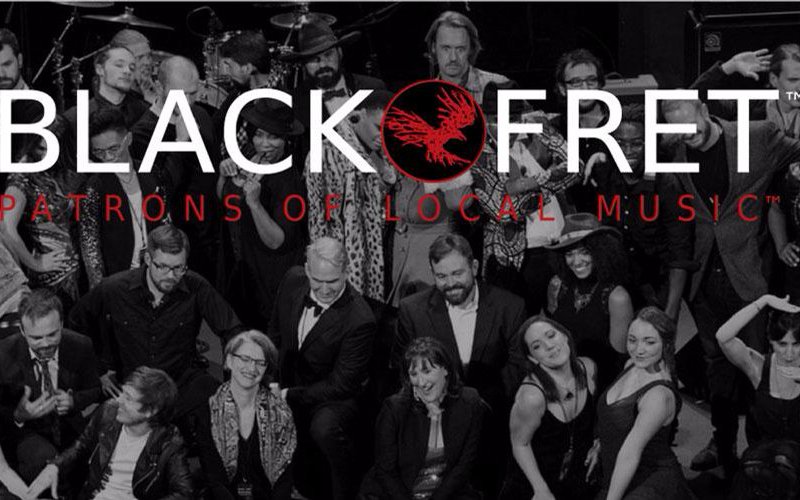
KEXP's Sound & Vision airs every Saturday morning from 7-9 AM PT, featuring interviews, artistry, commentary, insight, and conversation to that tell broader stories through music, and illustrate why music and art matter. You can also hear more stories in the new Sound & Vision Podcast. New episodes are out every Tuesday. Subscribe now.
Black Fret is coming to Seattle in January 2020. The service is membership based – people pay an annual fee for intimate live performances and, at the end of the year, money from those membership fees are given out to musicians. Last year, Black Fret gave out $20,000 grants to 10 musicians and smaller $5,000 grants to another 10 musicians in the nonprofit’s hometown of Austin, TX. Sound & Vision host Emily Fox spoke with the executive director of Black Fret Seattle, Ben London, about the service and why it’s expanding into Seattle.
Sound and Vision host Emily Fox spoke with Singletary about his glass art and how he fuses jazz and funk with indigenous music.
Australia’s federal government will spend more than three times as much money on artists and musicians as the U.S. will this year. Sound and Vision contributor Celine Teo-Blockey talks to the Australian group Haiku Hands about how that money is allowing them to break out internationally.
For artists and musicians, it’s not easy to perform in the United States if you are coming from another country. Obtaining a visa is expensive and complicated. Musicians are sometimes detained at the border and are forced to cancel shows. In fact, for many musicians living north or south of the U.S…